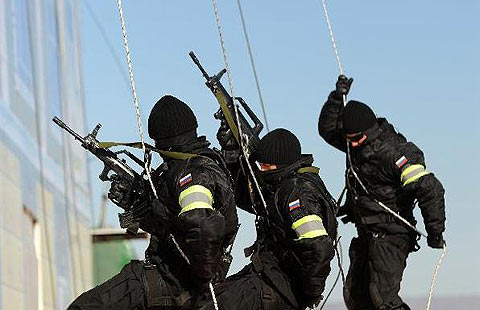No quick solutions for smog problem
Updated: 2014-10-22 08:17
By Zheng Jinran in Shijiazhuang(China Daily)
|
||||||||
When about 30,000 runners from around the world came to Beijing for the event, some of them got cold feet due to the lingering smog. Runners with a variety of masks were caught in the media spotlight, raising questions about how long it will be before blue skies are back in our lives.
"It will take China about 20 to 30 years to tackle the problem of air pollution fundamentally, based on the experiences of developed countries like Japan, the United States and the UK in reining in air pollution," said Song Guangsheng, head of the National Indoor Environment Monitoring Center, at a forum on ecological cities on Monday, China National Radio reported on Tuesday.
If the country uses the toughest restrictions and advanced technology to reduce emissions of air pollutants, it will take at least 15 to 20 years to see a thorough improvement in air quality, he said, citing statistics from an annual report in May on a low-carbon economy.
Considering the strong determination of governments to improve air quality in three to five years, many people are hopeful and feel positive about the environment in the near future, said Zhao Zhongxiu, an economics professor from the University of International Business and Economics and co-author of the low carbon report. But a fundamental improvement cannot be realized in the short term, Zhao said.
Many government officials doubted that it would take just two decades to return to good air quality.
"It will take years to cure the problems, which were accumulated during decades of development," said Lyu Wen, director of the air pollution control department of the Hebei Environmental Protection Bureau, on Tuesday, adding that there was no scientific research on how long it will take to rein in pollution using increasingly stronger measures.
Some experts said the current air pollution problem can be traced to emissions of past decades. One of them, Ma Zhong, a professor of environmental protection at Renmin University of China, said the highly polluting industries of steel and cement and other heavy industries discharged many pollutants over the years that have accumulated in the air.
Coal consumption from 2006 to 2010 was increased by around 1 billion tons more than planned, the annual report on energy consumption said in 2011.
"But we have started to take tough measures to cut the emissions, although it slows growth," Lyu said.
Hebei, which since last year has been the province with the worst air pollution, has shut down hundreds of polluting companies, including some that conform with national emission standards. In the first half of this year, its GDP growth was ranked second to last in China.
Some residents said they have witnessed improving air quality in the province.
"I noticed the improvement recently, and the slower economic growth is worth it for the better air quality," said Wang Wenyi, a vendor selling snacks in ShijiazhuangHebei province.
In September, Shijiazhuang was not among the top 10 cities with the worst air pollution, according to a report released on Tuesday by the Ministry of Environmental Protection.
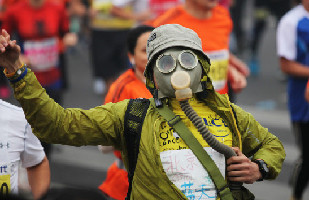 |
 |
| Beijing Marathon kicks off in haze | Smog affects tours to China |
- ZGC sets up association to fight air pollution
- China publishes draft ordinances on pollution punishment
- Air pollution to return on Friday
- Building codes and pollution control
- Officials fault Hebei cities' response to bad air pollution
- China speeds up national standard for anti-pollution masks
- Technology in new buildings touted as way to lower pollution
- Beijing given 10% of central funds to curb air pollution
- Across China: NW China city's air pollution transformation
- ‘Three-year plan’ to combat water pollution
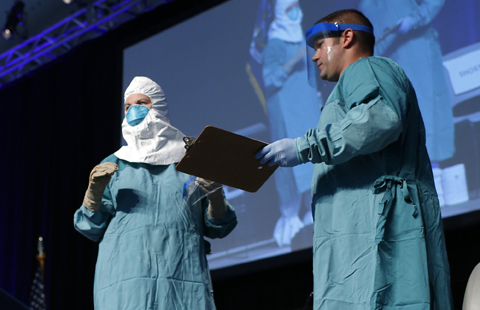
 US Healthcare workers attend Ebola educational session
US Healthcare workers attend Ebola educational session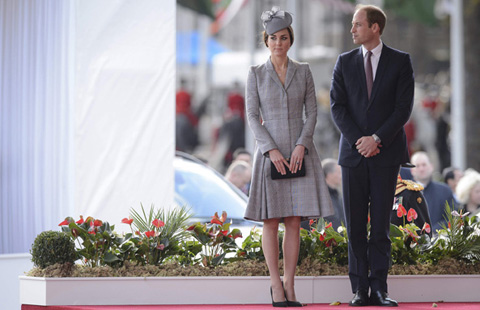
 Kate makes first public appearance after pregnancy
Kate makes first public appearance after pregnancy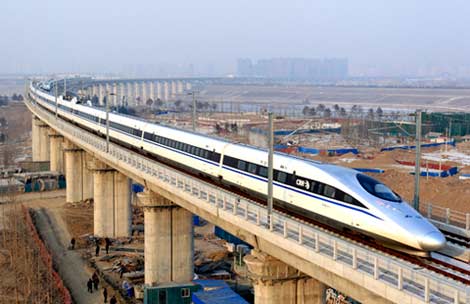
 Chinese may go after California high-speed rail project
Chinese may go after California high-speed rail project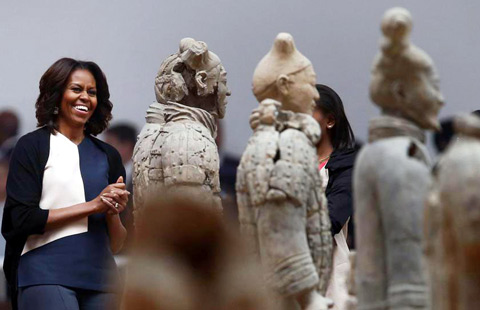
 Terracotta warriors attract celebrities around the world
Terracotta warriors attract celebrities around the world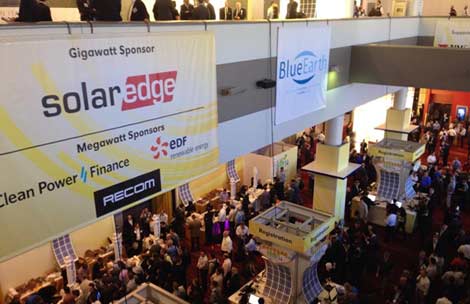
 US-China solar pact holds big potential: Analyst
US-China solar pact holds big potential: Analyst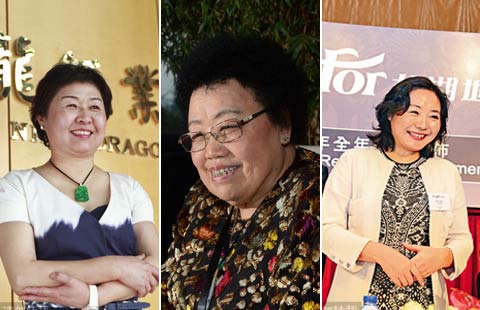
 Top 10 richest women in China
Top 10 richest women in China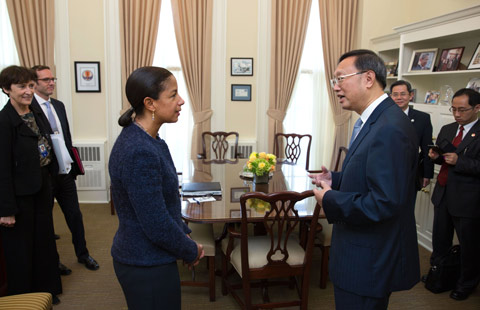
 Yang Jiechi meets with US National Security Advisor
Yang Jiechi meets with US National Security Advisor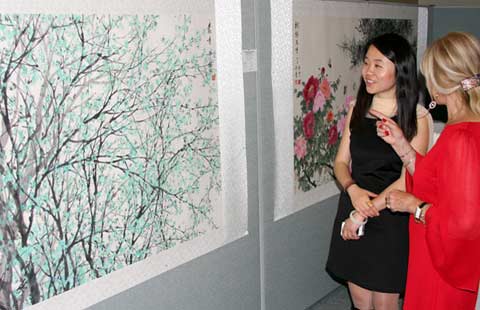
 Chinese power couple's art on display at UN
Chinese power couple's art on display at UN
Most Viewed
Editor's Picks

|

|

|

|

|

|
Today's Top News
US-China solar pact holds big potential
Li upbeat despite economic slowdown
Report: Mobile advertising on a roll
Students warned of online encounters
Chinese may go after California high-speed rail project
China to fund non-profit art performance
US, China co-op to train future Afghani diplomats
Priceless Chinese scroll may be gone
US Weekly

|

|


